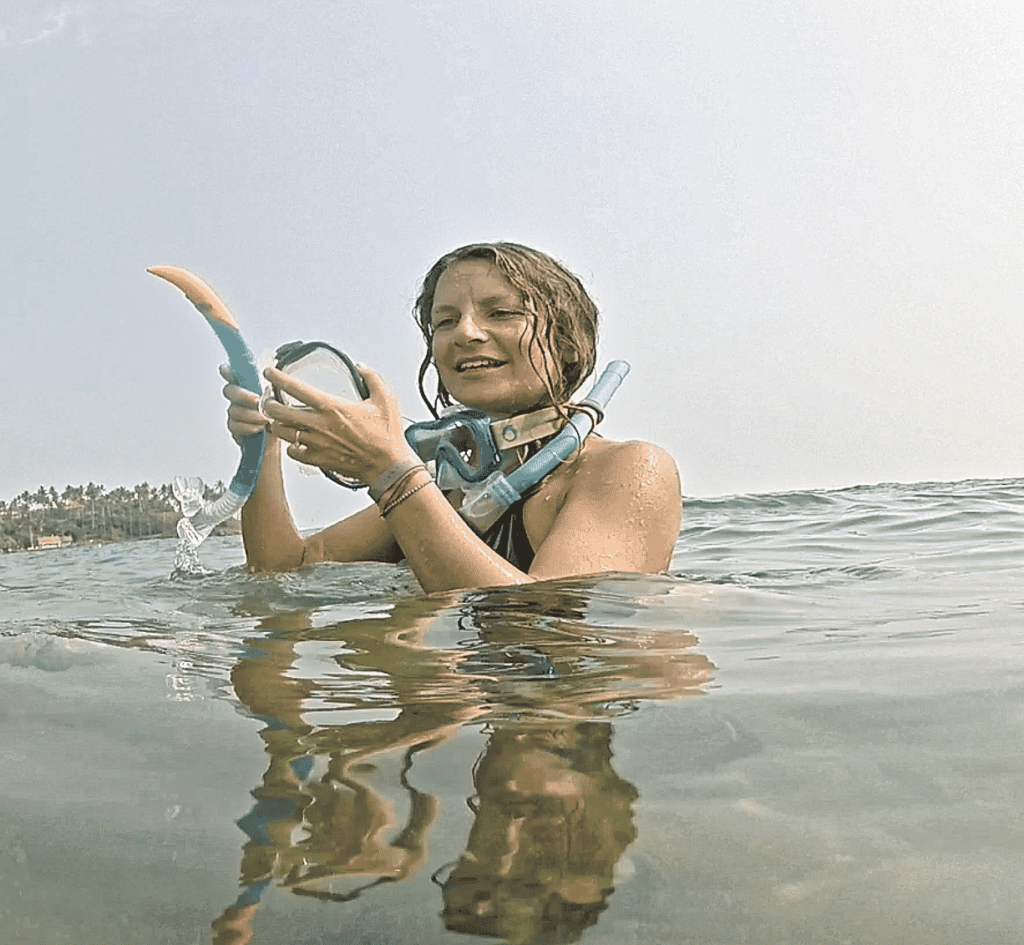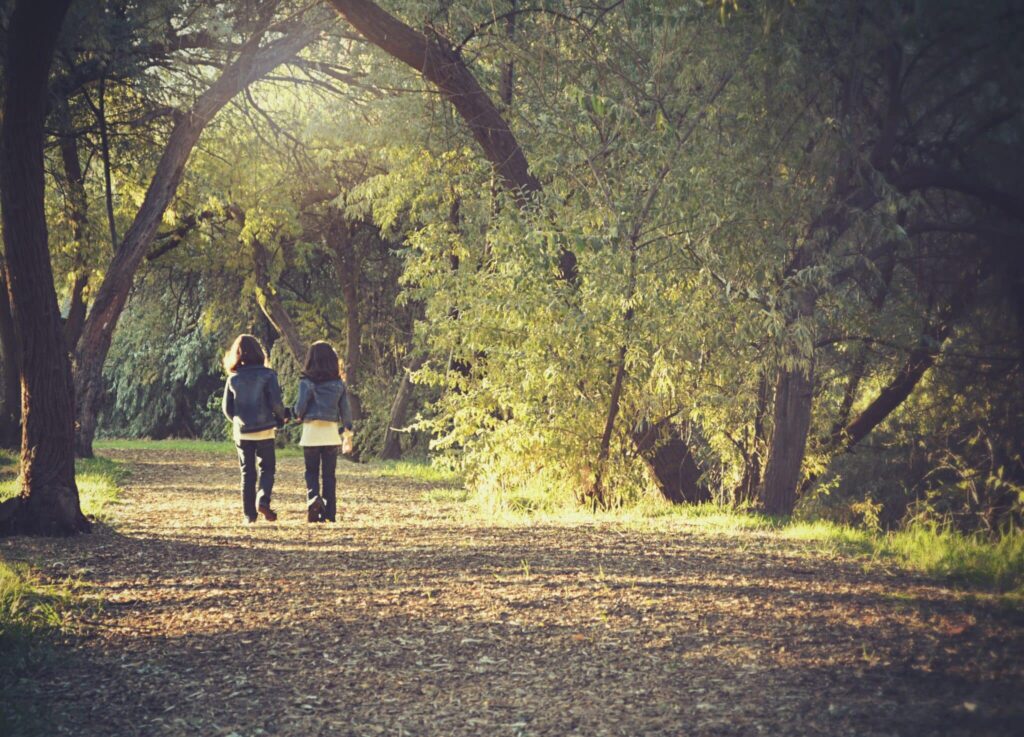The world is not left to us by our parents, It is lent to us by our children.
(African proverb)
Environmental education has been a public virtue since the 19th century. Yet, it became more of a debated topic in the last decades, linked to political interest and economy instead of science. Due to this, it’s more important than ever to teach children about the environment and sustainability – not only in school but also at home. Without action, the planet will suffer — and each generation along with it.
Each new generation needs to be better than the last. Children need to learn how to make decisions and be kind to each other and protect their environment to benefit the world as a whole.
“(…)environmental education is an issue of profound importance, especially for young children, the inheritors of great possibilities, but also of major social and environmental problems and challenges.” – Julie Davis in “Young Children, Environmental Education and the Future” (1998)
Why is environmental education so important?
When we look back to our childhood, it is easy to see how it shaped us to be who we are today. This is why it’s crucial to teach our children about the environment, especially at an early age. Our teachings will become their normal, the good ones and the not so good ones. It is with no doubt our responsibility to educate all generations before us, from the environmental habits they learn, the environmentally-conscious consumer choices they see, and the time they spend learning to love and appreciate the outdoors.
This is not a task to be taken by parents only, but by all of us, the so-called adults. We must educate our young relatives, neighbours and even the kid you see throwing trash on the floor. It is our responsibility to call them out and kindly show them how our environment must be treated. When we do this, we will shape them and their future.
Of course, not every one of us was taught to take care of the planet. Most of us didn’t even think about it during childhood. Our parents might not have had the knowledge about this topic; perhaps our schools told us about recycling only, not to mention that the television programs and documentaries of that time would show other unrelated things. For example, most of us didn’t really learn how to be responsible consumers and how it affects the environment. Becoming an environmentally-conscious consumer is something recent that started to get attention in recent years.
Today, information is everywhere. We can teach our children and have full support thanks to the evolution of technology. With the right research, we can get the right tools and lead our kids into a sustainable space of mind. This means focusing on recycled items, protecting ecosystems, buying sustainably sourced food, voting for leaders who show concern, finding energy-efficient appliances, using biodegradable cleaning products, and so much more.
Our kids absorb and mimic everything. Even if they learn a few sustainable choices, it will already make a huge impact. It is our responsibility, as adults, to show them the way.
Where should parents start?
Naturally, the earlier we teach children, the better. Focusing on social-emotional learning is key to help our kids adopt a conscientious mindset. The childcare experts at Kindercare state that “The vast majority of brain development happens between the ages of zero to three — the perfect time for children to build the positive social-emotional skills they’ll need.” Throughout these developmental years, focus on teaching them the foundational skills needed for critical thinking, human interactions, and creativity. As they grow up, these skills will empower them to examine environmental concerns, communicate those ideas, and ultimately find proper solutions.
Yet, even if your little one already goes to school and can choose her or his own clothes, it is not too late. There are plenty of ways to show them how to care, protect, and restore the environment. Here are some simple ways to start:
Spend more time in nature
It’s easier to care about an issue if it hits close to the place we live. This is why encouraging an interest in the outdoors can help your child’s future interest in environmental issues. Lead by example and give them activities to do. Take them for walks, hikes, to the lake, river or ocean. Let them climb trees, watch insects, and admire nature with its wildlife. Encourage their interest and questions and celebrate their appreciation. By providing them with more nature experiences, they will begin to associate their environment with curiosity and happiness.
Their love for the outdoors will help them to have an emotional connection to environmental issues. It will also encourage them to be even more sustainable. The result? – They may be more interested in cycling or walking rather than driving as they grow older. They even may choose more outdoor hobbies, like gardening. Moreover, the outdoors will encourage them to move more and stay healthier overall.
A recent study published in the journal Science Advances, conducted by experts in medicine and ecology, showed that letting children play in greener areas increases their immune system. This is to say that leading our younger generations to connect with the environment is not advantageous for the planet only. It is excellent for them and their health.
Reduce, reuse, recycle
Children can quickly learn to sort items and place them in the correct bins. Following “the three R’s” rule is very simple, although it is essential to understand that recycling is not the solution to our plastic problem[1] . In other words, if we teach the little ones to consume less in the first place, instead of leading them to purchase anything they like as long as they recycle, the world will evolve. Reducing and reusing is far more important than recycling overall. Let us remind you that only 9% of the plastic we use worldwide is recyclable.
Keep in mind that dirty recyclables won’t be recycled. Ask your kids to rinse them and place them in the correct places – they will quickly develop this habit for their future.
Compost
Although composting may sound scary to many families, there’s actually nothing complicated about adopting this rule at home. Composting is not only good for the environment, but it’s also a fantastic way to show children what should be placed in the garbage and what they can reuse. There are plenty of ways to make your own compost bin, and it’s easier than it seems.
The best part is, you’ll turn your food scraps and household organic matter into fertiliser instead of sending it to the landfill. You can use it in your raised beds or garden.
Use environmentally friendly means of transport
Whenever possible, try to choose transports with the least amount of disturbance to the environment. Take public transport, ride your bikes when spending free time with your family, or simply walk. Teaching your children to choose public transports will shape the child’s attitude in the future. Plus, you’ll save money you would usually spend on petrol – so why don’t you use that on a great weekend with your family?
Make gardening a fun hobby
During summer holidays or homeschooling, kids need responsible activities that encourage both education and environmental awareness. Help your child flourish by planting and growing together. You can show your kid how to take care of your home garden, plant a tree in the yard, or grow plants at home. In fact, you could grow a little jungle at your house, as it is proved that plants reduce stress.
You can even teach the importance of purposeful cultivation while building an understanding of basic life sciences, such as plant biology and ecology. This will give your young one food for the brain.
DIY
Adopting DIY projects to include reusing things like cardboard boxes, toilet rolls, old newspapers, plastic, and glass bottles won’t be time-consuming. You’re free to find plenty of ideas on the web. This is a fun and educational way to keep kids busy and, at the same time, show them that not everything should be put in the rubbish right after its usage.
Take part in community projects
Getting your family involved in go-green activities would be great to give the uprising generation an idea of an eco-friendly society. Your kids’ brains will absorb information faster, especially when the activities are fun. For example, you can manage gardening activities that would involve getting your children together and teach them about the importance of eco-friendly living.
Conclusion
In a nutshell, all these efforts will eventually lead young generations to healthy and physically fit grown-ups. Which is precisely what our planet needs.
Soon enough, our children will be decision-makers, educators, and perhaps policy-makers. What we teach them today will indeed affect their future life choices and habits. Teaching them how to lead a sustainable and eco-friendly lifestyle will get them to take responsibility for their actions and maintain a healthier planet.
No one needs to be perfect to teach children about the environment. Each small, sustainable change makes an impact. Teaching a single child will result in fewer pieces of plastic in a landfill, less marine animals in danger, or fewer dollars spent on oil. Showing children how they can have an impact will help raise a generation of more aware and environmentally conscious adults than the generation before them.
It is not by chance that the quote “children are the future” is so famous.
Their education is in our hands, and it’s up to us to give them the right knowledge and tools to let them grow into the best adults possible.
It would be nice to make a link here to my last article “Why Recycling is not Enough to Solve our Plastic Issue“. This way, interested readers can click on it and read that article on your website.

Guest Authour
JOANA RITA REIS
A guest writer to the USA Times and qualified Marine Biologist, Joana is a content writer for Naturpac. She focuses on writing about ecological and environmental change. She partners with Naturpac to help educate the supply chain and consumers on the power of change surrounding better packaging choices. She shares the Naturpac vision of a Better Earth.
